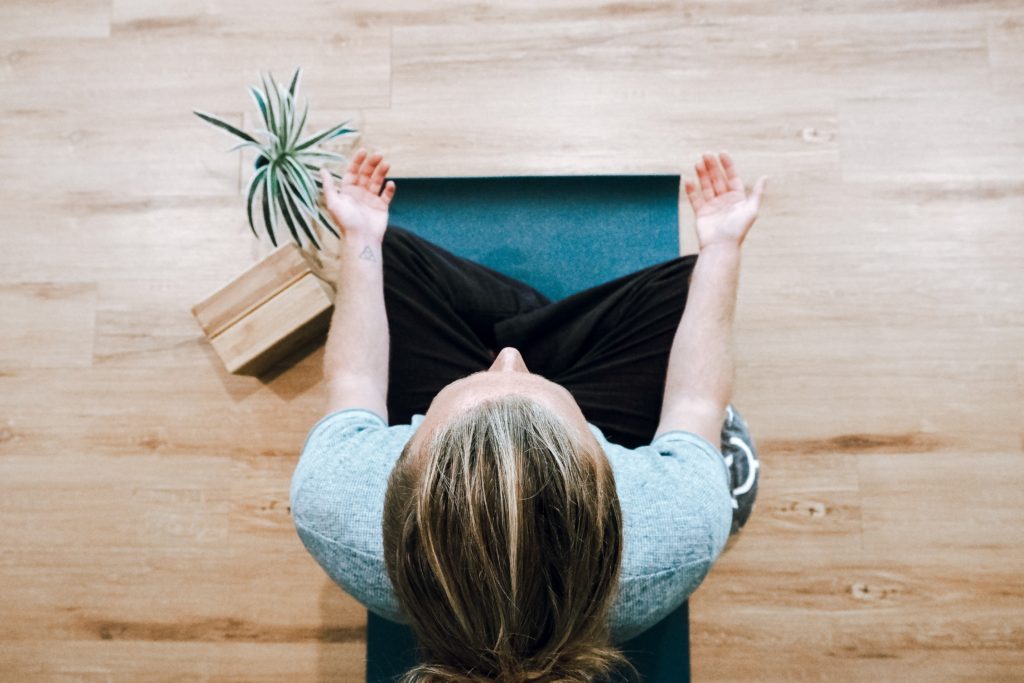
The Power of Mindfulness: Techniques to Enhance Mental Well-being
In the hustle and bustle of our modern lives, it’s easy to get caught up in a whirlwind of thoughts, worries, and distractions. Amid this chaos, the practice of mindfulness […]
In the hustle and bustle of our modern lives, it’s easy to get caught up in a whirlwind of thoughts, worries, and distractions. Amid this chaos, the practice of mindfulness offers a serene oasis—a way to reconnect with the present moment and nurture our mental well-being. In this article, we’ll delve into the transformative power of mindfulness and explore techniques that can help you cultivate a more peaceful and fulfilling life.
Understanding Mindfulness: A Gateway to Presence
Mindfulness is the art of being fully present in the moment, without judgment or distraction. It’s about tuning in to your thoughts, emotions, and sensations in a non-reactive way. This simple yet profound practice allows you to experience life more deeply and fully. By embracing mindfulness, you can enhance your mental well-being, reduce stress, and improve your overall quality of life.
The Science Behind Mindfulness
Mindfulness might seem like a spiritual concept, but its benefits are firmly rooted in science. Over the past few decades, research has shown that mindfulness practices can have a positive impact on various aspects of mental and emotional well-being, including:
- Stress Reduction: Mindfulness helps regulate the body’s stress response, reducing the production of stress hormones and promoting a sense of calm.
- Anxiety Management: By focusing on the present moment, mindfulness can alleviate anxiety by preventing excessive worry about the future or rumination about the past.
- Depression Prevention: Mindfulness encourages a non-judgmental awareness of one’s thoughts and feelings, which can help break the cycle of negative thought patterns associated with depression.
- Emotion Regulation: Practicing mindfulness allows you to observe your emotions without becoming overwhelmed by them. This awareness promotes emotional balance.
- Increased Self-Awareness: Mindfulness encourages introspection, enabling you to better understand your thoughts, behaviors, and triggers.
- Enhanced Focus and Concentration: Regular mindfulness practice improves cognitive abilities, helping you stay focused and attentive to tasks.
Mindfulness Techniques for Mental Well-being
- Mindful Breathing: One of the simplest yet most effective mindfulness techniques is focusing on your breath. Close your eyes, take a deep breath, and direct your attention to the sensation of your breath as it enters and leaves your body. This practice anchors you in the present moment and promotes relaxation.
- Body Scan Meditation: Lie down in a comfortable position and mentally scan your body from head to toe, paying attention to any areas of tension or discomfort. This practice promotes body awareness and relaxation.
- Mindful Eating: Before you eat, take a moment to observe the colors, textures, and smells of your food. As you eat, savor each bite, focusing on the flavors and sensations. Mindful eating fosters a healthier relationship with food and enhances the dining experience.
- Walking Meditation: During a walk, focus your attention on the sensation of each step—the feeling of your feet touching the ground, the rhythm of your movement. This practice brings mindfulness to your everyday activities.
- Guided Imagery: Listen to guided imagery recordings that take you on a mental journey to a peaceful place. Engaging your senses in this visualization can evoke feelings of calm and tranquility.
- Loving-Kindness Meditation: This practice involves sending well-wishes to yourself and others. Start by directing kind thoughts towards yourself, then extend those wishes to loved ones, acquaintances, and even those with whom you have conflicts. This technique promotes compassion and empathy.
- Mindful Journaling: Dedicate a few minutes each day to journal your thoughts and feelings. This practice helps you process your experiences, gain insights, and track your progress.
- Technology Detox: Unplug from digital devices for a set period each day. Use this time to engage in mindfulness practices without the distractions of technology.
Incorporating Mindfulness into Daily Life
The beauty of mindfulness lies in its accessibility—it can be practiced anywhere, anytime. Here’s how to integrate mindfulness into your daily routine:
- Start Small: Begin with just a few minutes of mindfulness practice each day, gradually increasing the duration as you become more comfortable.
- Create Rituals: Set aside specific times for mindfulness practice, such as in the morning before starting your day or in the evening before bed.
- Pause and Breathe: Whenever you feel overwhelmed or stressed, take a moment to pause and take a few deep breaths. This simple act can ground you in the present moment.
- Mindful Moments: Use everyday activities as opportunities for mindfulness. Whether it’s brushing your teeth, washing dishes, or commuting, bring your full attention to the task at hand.
- Mindful Listening: When engaged in conversation, practice active listening by giving your full attention to the speaker. This fosters deeper connections and understanding.
Cultivating Mindfulness with SanaNetwork.com
At SanaNetwork.com, we’re dedicated to supporting your journey towards improved mental well-being. Our platform connects you with healthcare providers who specialize in mindfulness-based approaches and other therapeutic techniques. Whether you’re seeking guidance on incorporating mindfulness into your life or exploring ways to enhance your mental resilience, we’re here to help.
Remember, mindfulness is a practice, not a destination. It’s a lifelong journey of self-discovery, growth, and well-being. By nurturing the art of mindfulness, you can unlock a world of inner peace, greater awareness, and a profound connection to the present moment. Embrace the power of mindfulness and watch as it transforms your mental landscape, fostering a healthier, more fulfilling life.
Photo by Katerina May on Unsplash
Written by ChatGPT & Reviewed by Clinical Psychologist: Yoendry Torres, Psy.D.
